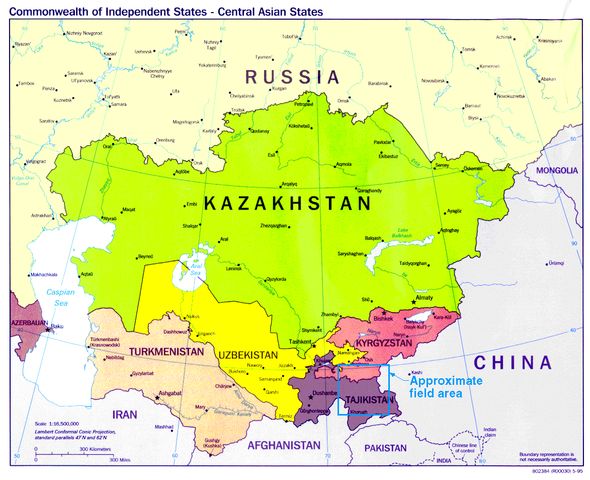BISHKEK (TCA) — Kyrgyz Parliament Deputy Ekmat Baikabayev proposed introducing an additional tax for gasoline and diesel fuel use and allocating the raised funds to improve the environmental situation in the country. A draft Government Resolution on this issue has been submitted for public discussion.
Kyrgyzstan
Earlier, the Kyrgyz Parliament members planned to draft a bill banning the import of old cars in the country, but later they changed their mind, concluding that it would be more expedient to act not by prohibitions but by economic incentives.
The MPs proposed that owners of new cars would pay less tax. Older cars are more affordable, but less environmentally friendly.
According to the country’s concept of transition to a green economy, the high level of motorization, outdated cars and the use of low-quality petroleum products leads to greater harmful emissions into the atmosphere, mainly by motor vehicles using gasoline and diesel fuel.
MP Baikabayev proposed to introduce a tax for air pollution by motor vehicles. The most optimal and simple solution will be the introduction of a certain amount of environmental pollution charges for every liter of fuel consumed by motor vehicles, the bill’s author believes.
Motor vehicles use about 1 million liters of gasoline and 0.7 million liters of diesel fuel per year in Kyrgyzstan. With the introduction of payment for air pollution of 0.5 soms per one liter, the state budget could additionally receive up to 850 million soms annually, which can be used for environmental protection, the MP said.
According to the Environment National Report, emissions from motor vehicles into the air totaled 400 thousand tons in 2014. The main consumption of petroleum products was in Bishkek where about 450 thousand of vehicles were registered.
In winter, public organizations fixed the excess of air pollution in almost all Bishkek districts. According to experts, air pollution increases the risk of human diseases such as lung cancer, stroke, heart disease and chronic bronchitis.
In 2015, the Government introduced fees for emissions into the atmosphere (3.24 soms per ton of pollutants). For three years, the Fund for Nature Conservation and Forestry Development has received 895 million soms.
It is possible to understand and justify the MPs’ initiatives to increase taxes if incomes of citizens increase at the same time. Otherwise, new taxes can cause social tension.
Kazakhstan
To address the environmental problem in Nur-Sultan (former Astana), a three-year comprehensive environmental improvement plan is being implemented according to which motor vehicles of utility companies have been transferred from gasoline and diesel to gas.
More than 14 thousand agreements were concluded with legal entities and individuals for the installation of gas equipment. There are hundreds of eco-taxis and thousands of private cars with installed gas equipment in the city.
To reduce motor vehicle emissions in Almaty, Euro fuel toxicity standards are introduced. To ensure unimpeded traffic, the city authorities developed a road junction construction plan.
At the same time, the government is taking effective measures to improve people’s well-being.
The minimum wage was raised 1.5-fold this year, up to 42,500 tenge, Primeminister.kz reported.
The increase in wages covered 1.3 million people working in enterprises of various forms of ownership, and 275,000 employees of state-financed organizations. Their salaries increased by an average of 35%.
Wages of more than one million Kazakhstanis with low wages grew by 50% compared to 2018.
The Kazakh Government recently offered individual entrepreneurs to reduce income tax payments by half if until January 1, 2020, small businesses are fully equipped with online cash registers.
The same benefits will be valid until January 1, 2022, if small businesses purchase an integrated three-component system including an online cash register, a POS terminal, and a special device for automating trade and accounting for goods.
Uzbekistan
According to the Economist Intelligence Unit’s 2019 Worldwide Cost of Living Survey, Uzbekistan’s capital Tashkent is among the cheapest cities in the world. Experts compared the cost of essential goods in 133 cities.
With an average monthly salary of about $200, prices have been growing over the past two years in Uzbekistan. From December 2016 to December 2018, prices for the most popular products and services rose from 18% to 78%.
Inflation is a consequence of the country’s reforms including reduction of subsidies and privileges for energy consumption, utilities, etc.
From March 1, 2019, a new order was introduced to liberalize the business conditions in Uzbekistan.
Banks can now remotely open accounts for legal entities whose founders are Uzbekistan residents and individual entrepreneurs. Procedures for obtaining construction permits were simplified.
The value added tax (VAT) has been introduced in Uzbekistan since January 1, 1992. Initially it was 30%, in 1993-1994 — 25%, and it is 20% from 1998 to the present.
The VAT is also applied at a zero rate, and there are benefits in the form of full or partial exemption from VAT. For instance, a number of basic foodstuffs are exempt from VAT.
This year, the tax burden on the wage fund will be reduced, and a single 12% tax rate on entities’ incomes will be introduced in the country, the local media reported.
In the budget of 2019, 54% of expenditures will be directed to the social sphere. Since January 1, the Government has increased salaries for teachers and low-paid state employees by 15%. Medical workers’ salaries will grow by an average of 26.5% in addition to the 20% increase from December 1, 2018.
Uzbekistan’s tax policy concept is aimed at reducing the tax burden on the economy and optimizing the amount of taxes, as well as providing a favorable regime for foreign investment by simplifying legislation.
Tax reforms have increased the number of taxpayers, and tax revenues to the state budget have almost doubled.
Tajikistan
According to the State Tax Committee of Tajikistan, suppliers of motor vehicles produced not more than a year ago are exempted from VAT by 50%. The state budget will receive less money, but there are conditions for the creation of new jobs, an increase in the production of goods, the Tax Committee said.
Since April 2018, the import of foreign cars older than of 2005 has been banned in Tajikistan while the cost of customs clearance for new cars reduced.
More than half of about 500,000 motor vehicles are old in the country. With the ban, the Parliament deputies expect to solve two problems at once — to renew the motor fleet and improve the environment.
According to various annual ratings held by the World Bank and other international organizations, tax rates are really high in Tajikistan compared to other countries.
Tajikistan was among the top nine countries with the highest tax burden, according to the Paying Taxes 2019. The total tax rate is 67.3% in the country.
Among Central Asia countries, Kyrgyzstan ranked 50th (total tax rate of 29%), Kazakhstan is at 56th place, and Uzbekistan at 64th place.
The Tajik authorities did not agree with the Paying Taxes 2019 conclusions. The study’s authors did not take into account reforms in the tax system of Tajikistan and privileges provided to certain enterprises and organizations, they said.
According to the National Bank of Tajikistan, there were 4 million taxpayers, or about 45% of the country’s 9 million population, last year.
With the 67% share of taxes and other obligatory payments, a legal medium-sized and small businesses are doomed to failure, economic observers believe.
Burdensome taxes force many businesspeople to transfer their businesses to neighboring countries with more favorable development conditions. Those who remained in the country were forced to hide most of their income operating in the shadow economy.
In 2017, about 28.5 thousand of individual entrepreneurs and about 1.8 thousand of legal entities closed their businesses in Tajikistan.
The situation has deteriorated with the adoption of the new Tax Code in 2012, because the types of taxes were reduced but tax rates increased.
Experts proposed to simplify the tax system, reduce tax rates and abandon the practice of granting tax preferences to companies owned by relatives of high-ranking officials.
Turkmenistan
A road use tax has been introduced in Turkmenistan since October 2018. The tax is 96 manats per month for trucks and heavy machinery and 16 manats for cars. Without tax payment, transport is not allowed for technical inspection and prohibited to operate, Chronicles of Turkmenistan reported.
Trucks should pass technical inspection twice a year and passenger motor vehicles once a year.
In August 2018, the cost of motor vehicle inspection increased 10-fold in Ashgabat. The jump led to higher prices for taxis, logistics services and, accordingly, goods and food.
To improve the environmental situation in the country and expand cooperation with the Toyota Corporation, Turkmen President Gurbanguly Berdymukhamedov ordered the government to think about the production of modern hybrid and electric vehicles.








